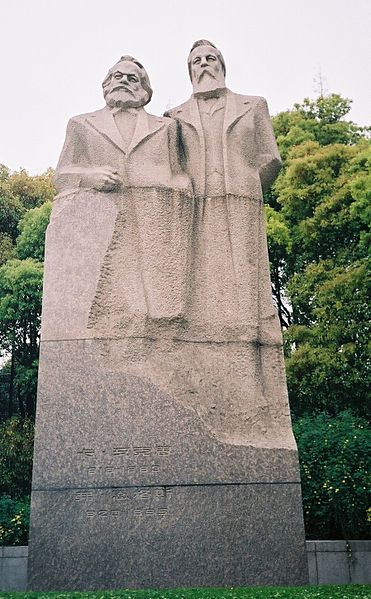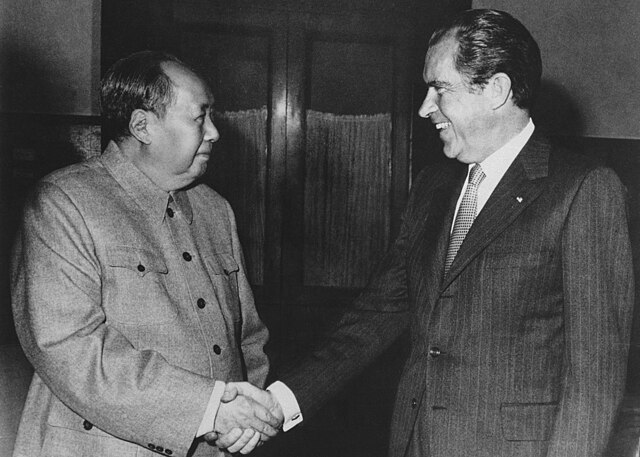On Contradiction is a 1937 essay by the Chinese Communist revolutionary Mao Zedong. Along with On Practice, it forms the philosophical underpinnings of the political ideology that would later become Maoism. It was written in August 1937, as an interpretation of the philosophy of dialectical materialism, while Mao was at his guerrilla base in Yan'an. Mao suggests that all movement and life is a result of contradiction. Mao separates his paper into different sections: the two world outlooks, the universality of contradiction, the particularity of contradiction, the principal contradiction and principal aspect of contradiction, the identity and struggle of aspects of contradiction, the place of antagonism in contradiction, and finally the conclusion. Mao further develops the theme laid out in On Contradiction in his 1957 speech On the Correct Handling of Contradictions Among the People.
Cover art of the 1967 English version.
Ideology of the Chinese Communist Party
The Chinese Communist Party (CCP) frames its ideology as Marxism adapted to the historical context of China, often expressing it as socialism with Chinese characteristics. Major ideological contributions of the CCP's leadership are viewed as "Thought" or "Theory," with "Thought" carrying greater weight. Influential concepts include Mao Zedong Thought, Deng Xiaoping Theory, and Xi Jinping Thought. Other important concepts include the socialist market economy, Jiang Zemin's idea of the Three Represents, and Hu Jintao's Scientific Outlook on Development.
A monument dedicated to Marx (left) and Engels (right) in Shanghai, China
Mao Zedong (left) meets with Richard Nixon, the President of the United States, on 21 February 1972
Private ownership of the means of productions were allowed as a result of the reforms.
Numerous books (as seen in the picture) about the Three Represents have been published.





